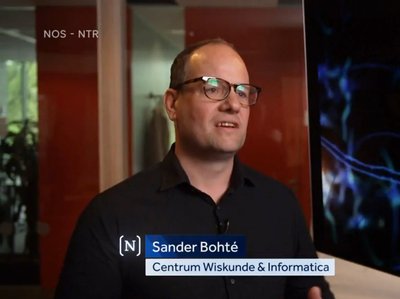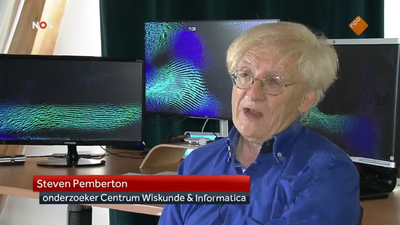Press coverage
A selection of highlights of CWI media appearances.
2024 highlights
The General Intelligence and Security Service (AIVD), the Cryptology group of Centrum Wiskunde & Informatica (CWI), and TNO published a renewed PQC handbook for quantum-safe cryptography. This was presented to Minister Zsolt Szabó on 3 December in The Hague. The event was mentioned in several media, among others AG Connect (in Dutch).
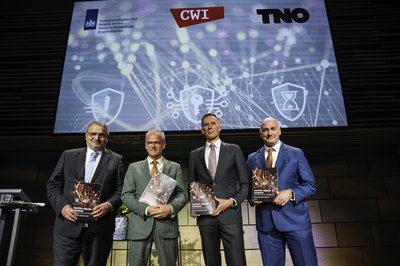
Group picture of the PQC Migration Handbook 2024 presentation, as used by AG Connect. From left to right: Maarten Tossings (COO, TNO), Bas Dunnebier (CSTO, AIVD), Zsolt Szabó (Minister of Digitalisation and Kingdom Relations) and Ton de Kok (director CWI).
PhD student Salim Salmi has developed an AI tool that can support 113 Suicide Prevention counsellors in chat conversations with people who are thinking about ending their lives. He was interviewed for the national newspapers Trouw and het Parool.
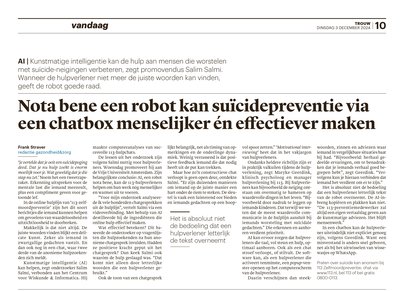
Senior researcher Tim Baarslag was interviewed in technology magazine IEEE Spectrum about the future of negotiation AI.
With some of the world’s largest companies using bots powered by artificial intelligence to negotiate supplier contracts, the question arises: how close are we to fully autonomous negotiation tools and what does this mean for businesses?
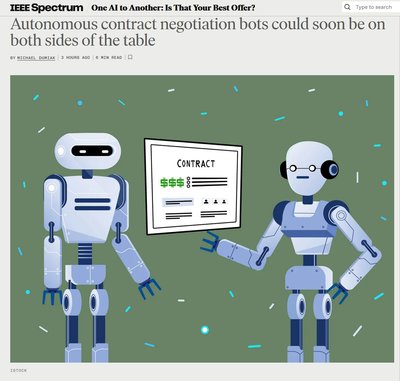
On 1 November 2024, the Dutch national newspaper Trouw reported on two American high school students who created new proofs for the Pythagorean theorem: Ne’Kiya Jackson and Calcea Johnson.
Challenged by their teacher to find an original proof for the well-known rule that explains the relationship between the lengths of sides on a right triangle, the girls succeeded using trigonometry.
Their work was peer-reviewed and published in the American Mathematical Monthly.
CWI Fellow Krzysztof Apt praised the proof as “tricky, beautiful, and unexpected.”
He regretted not being able to include this example in his recent book on mathematical history, as it highlights the contributions of amateurs who can explore questions outside formal research programs, and who can uncover new connections.
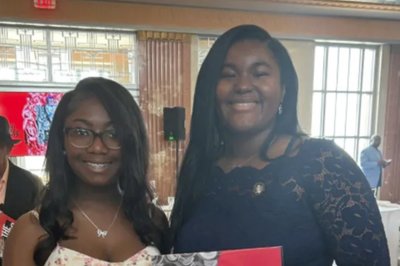
Picture: Ne’Kiya Jackson and Calcea Johnson. Source: Calcea Johnson via MMA and Smithsonian magazine
"The AI genie is really out of the bottle now", writes CWI director Ton De Kok in his column of 18 September 2024 in AG Connect (in Dutch), referring to the energy-hungry "knowledge" machines that have come with it. 'We need green AI (...), with demonstrable efficiency and effectiveness'. The column was published both online and published in the printed magazine.
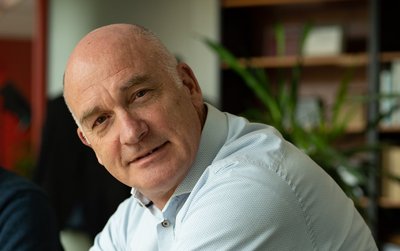
On 30 August 2024, PhD student Tamara Florijn from CWI and Utrecht University was featured on Dutch national radio, on NPO Radio 1’s 'Vroeg! Studieclub' (BNNVARA, 5-6 AM).
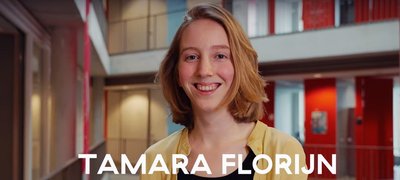
As one of the 'Faces of Science', Tamara discussed her research on teaching computers to negotiate and make compromises.
Curious about how AI can balance decisions in our daily lives and beyond? Don’t miss out—listen to Tamara's radio interview here, in Dutch. Also available on Spotify as a podcast.
National newspaper de Telegraaf and other media wrote about the new quantum-safe standards from NIST, co-developed by Léo Ducas from CWI's Cryptology group.
The article ''Safety first" ("Veiligheid voorop") appeared in the printed newspaper on 20 August 2024, and also online - there with the title "Security of billions of online users improved by new cryptography standards" ("Veiligheid miljarden online-gebruikers beter door nieuwe cryptografie standaarden"; behind a paywall).
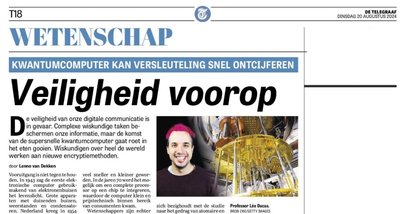
Picture: part of the clipping of the PQC article with Léo Ducas in de Telegraaf of 20 August 2024.
For its September 2024 issue, New Scientist interviewed Thomas Attema (TNO and CWI) and his TNO colleague Richard Versluis on the 'Cryptocalypse': the moment that future quantum computers will be able to 'crack' many of the current encryption methods.
In the interview 'The end of a safe internet' ('Het einde van een veilig internet'; behind a paywall) they tell the readers about the new generation of encryption protocols to mitigate these risks, also known as post-quantum cryptography.
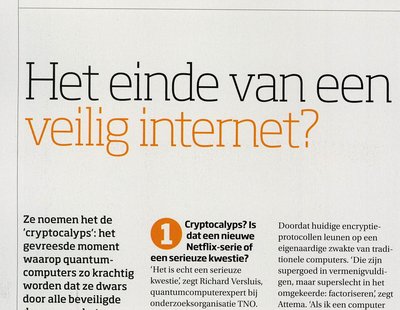
CWI researchers Rob van der Mei, Joris Slootweg and Jesse Nagel developed an algorithm that helps tourists coordinate their plans based on personal preferences and availability. This reduces waiting times for attractions. They tested the algorithm on real data from the city of Amsterdam.
On their websites and in the print version national newspapers de Telegraaf and het Parool wrote about the invention.
CWI researchers Rob van der Mei, Joris Slootweg and Jesse Nagel developed an algorithm that helps tourists coordinate their plans based on personal preferences and availability. This reduces waiting times for events. They tested the algorithm on real data from the city of Amsterdam.
- Joris Slootweg was interviewed by AT5 and got the chance to ask tourists if they would use such an application.
- A fragment of the interview was mentioned at the news broadcast from RTL Nieuws (go to 6:56) and at the Radio 1 Journaal (go to 1:45:26).
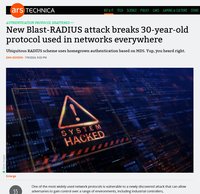
CWI cryptanalyst Marc Stevens and an international team demonstrated a vulnerability in the RADIUS/UDP protocol, which is widely used for access control to networks and network equipment. They announced this on 9 July 2024 under the name of Blast-RADIUS.
Ars Technica published an article by Dan Goodin: 'New Blast-RADIUS attack breaks 30-year-old protocol used in networks everywhere'.
Goodin writes: "Ubiquitous RADIUS scheme uses homegrown authentication based on MD5. Yup, you heard right." And: "One of the most widely used network protocols is vulnerable to a newly discovered attack that can allow adversaries to gain control over a range of environments, including industrial controllers, telecommunications services, ISPs, and all manner of enterprise networks. "
The researchers who demonstrated the attack are from Cloudflare, the university UC San Diego, Microsoft Research, and the CWI's Cryptology group. They recommend to use RADIUS/TLS instead.
The news appeared in several other media, such as the Dutch Computable, a post by security expert Bruce Shneier, in SecurityWeek, CSO online, in the Register and in the Dutch Security.nl.
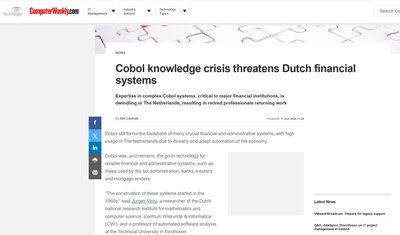
On 11 June 2024, an interview in ComputerWeekly.com by Kim Loohuis with Jurgen Vinju and Tijs van der Storm was published. The CWI researchers say we need to invest in Cobol expertise.
Van der Storm on LinkedIn: "Cobol runs society's critical financial infrastructure. We need to keep it running, or design careful paths for migration. It's all about knowledge!"
ComputerWeekly provides the latest IT news and analysis through, among others, its website and weekly digital magazine with 200,000 subscribers.

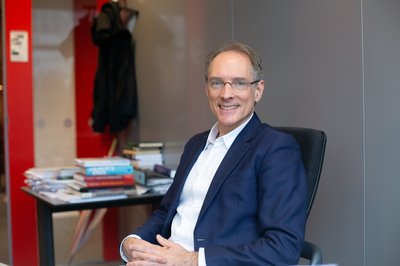
On 11 April CWI released the news that Peter Grünwald, senior researcher in the Machine Learning group of CWI and part-time full professor of Statistical Learning at Leiden University, had been awarded an ERC Advanced Grant for his research on developing a new, revolutionary theory of statistics.
Grünwald will use the prestigious top grant of 2.5 million euros for the development of a new, more robust and flexible theory of statistics based on the novel concept of e-value. This will lead, for example, to more reliable methods for determining whether or not scientific results are statistically significant. In short: the e-value is the new p-value.
Newspaper Volkskrant published the article "Amsterdamse wiskundige krijgt 2,5 miljoen euro om ‘lek’ in de wetenschap te dichten: ‘Weg met p, hier is e’."

On 11 April CWI released the news that Peter Grünwald, senior researcher in the Machine Learning group of CWI and part-time full professor of Statistical Learning at Leiden University, had been awarded an ERC Advanced Grant for his research on developing a new, revolutionary theory of statistics.
Grünwald will use the prestigious top grant of 2.5 million euros for the development of a new, more robust and flexible theory of statistics based on the novel concept of e-value. This will lead, for example, to more reliable methods for determining whether or not scientific results are statistically significant. In short: the e-value is the new p-value.
Newspaper Trouw published the article "Onze manier om verbanden te toetsen is krakkemikkig, en deze wiskundige gaat daar iets aan doen" on the occasion of this news on 11 April.
CWI researchers Peter Bosman (head of CWI's Evolutionary Intelligence group) and Eric Pauwels (head of CWI's Intelligent and Autonomous Systems group) are being interviewed in the March issue of KIJK Magazine (in Dutch), in the cover article 'How does AI draw its conclusions? Science cracks the black box' (in Dutch: 'Hoe trekt AI zijn conclusies? Wetenschap kraakt de black box').
For the full text, see the paper copy of the March 2024 issue, which can be bought at the webshop of Kijk Magazine.
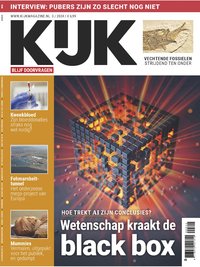
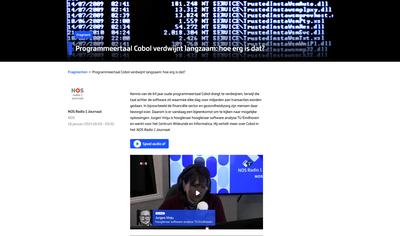
Jurgen Vinju was interviewed live on NOS radio 1 by host Astrid Kersseboom. The topic?
Knowledge of the 64-year-old Cobol programming language is in danger of disappearing, while that language is behind the software that is used to make billions of transactions every day. In the financial and health care sectors, for example, people are concerned about this. That is why there is a meeting today at CWI to look at possible solutions. Jurgen Vinju is professor of software analysis TU Eindhoven and works for CWI, the national research Center for Mathematics and Computer Science in the Netherlands. He talked about this subject in the NOS Radio 1 Journaal on 18 January 2023.
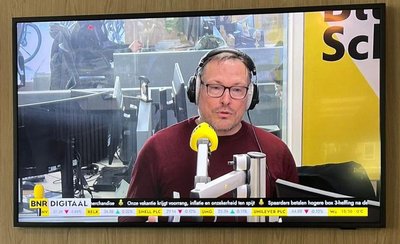
CWI's Jurgen Vinju was interviewed in the podcast from BNR Digitaal with CWI researcher on programming language COBOL. Lots of important infrastructures in the Netherlands run on this language, that dates from the 1960s. For instance the banks or the Dutch Tax Administration. Is that a problem? Hosts Joe van Burik and Ben Van der Burg are wondering.
Jurgen explains the importance and the urgency of COBOL maintenance and the challenge of finding new COBOL programmers . Please note: the podcast is in Dutch https://lnkd.in/evG6BuiN
There is also an event on this issue at CWI on 18 January, called the ‘Future of COBOL and mainframe’.
In Dutch national newspaper Trouw Lisa Kohl was interviewed on her anti-money laundering research, which she is doing with her 2023 Veni grant.
See the article on Trouw's website (in Dutch, registration needed) of 5 January 2024, or the paper version on 6 January.
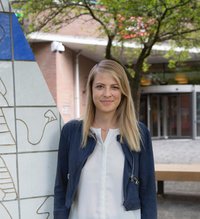
In the Dutch national newspaper Algemeen Dagblad of 3 January 2024, three Veni & Vidi winners were being interviewed.
According to CWI's Lisa Kohl, cryptography is invisible as long as it works. “It is only in the spotlight when something goes wrong."
And: "With mathematics, I want to discover, understand the world and make it a little bit better."
2023 highlights
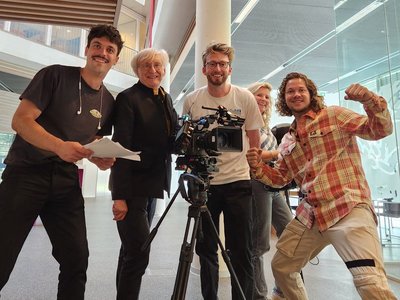
On Thursday 2 November Steven Pemberton told on Dutch national TV about the early days of the open Internet at CWI, in TV programme Het Klokhuis. The programme was broadcast on NPO3 at 18.43h.
See: NPO Start: https://www.npostart.nl/het-klokhuis/02-11-2023/VPWON_1350149 or https://hetklokhuis.nl/tv-uitzending/5303/internet
(Picture: Emile Gorter)
Global warming also means that there will be more thunderstorms. Ute Ebert (CWI and TU/e) tells in national newspaper AD (in Dutch) how lightning works and what you should or should not do during thunderstorms.
See: https://www.ad.nl/wonen/onweer-op-komst-dit-moet-je-niet-doen-als-het-bliksemt~af4e9375/
(NB The journalist's own remark 'Even though the chance is nil' should be read as '... small'.)
On 4 September 2023, CWI Fellow Dick Bulterman was interviewed by the Dutch Broadcasting Foundation (NOS) for the six and eight o’clock news on national TV on the 25th anniversary of Google this month and the company's development in this quarter-century.
The interview, in Dutch: https://www.npostart.nl/nos-journaal/04-09-2023/POW_05467525 (18.01 min.).
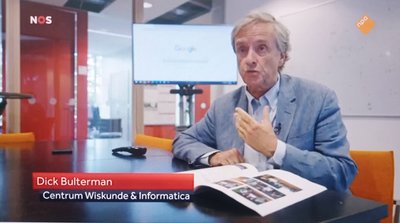
On 21 July 2023, Marc Stevens from CWI's Cryptology group appeared in Computer Weekly, in the article 'Handbook helps Dutch organisations migrate to quantum-safe communication'. Computer Weekly has 200,000 subscribers and its content is targeted at senior IT managers in Europe.
On 7 April 2023 national newspaper Trouw published an interview with Marc Stevens from CWI's Cryptology group on post-quantum cryptography (in Dutch; 'Zo worden onze versleutelde data quantumproof').
Read more about this news item on the website of NOS Journaal.
Watch the news item here (from 14.32 onward)
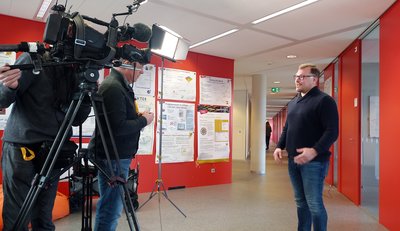
2022 highlights
The advisory board reviewing the ICT behind the Environment Act issued a critical report on the ICT system the Act depends on. CWI Fellow Paul Klint, who is part of the advisory board, was interviewed about it by Nieuwsuur (from 32:03) and BNR Nieuwsradio.

Ducas is interviewed on cryptographic standards to protect sensitive electronic data against the threat of quantum computers. He is involved in the two primary schemes selected by the US National Institute of Standards and Technology (NIST).
